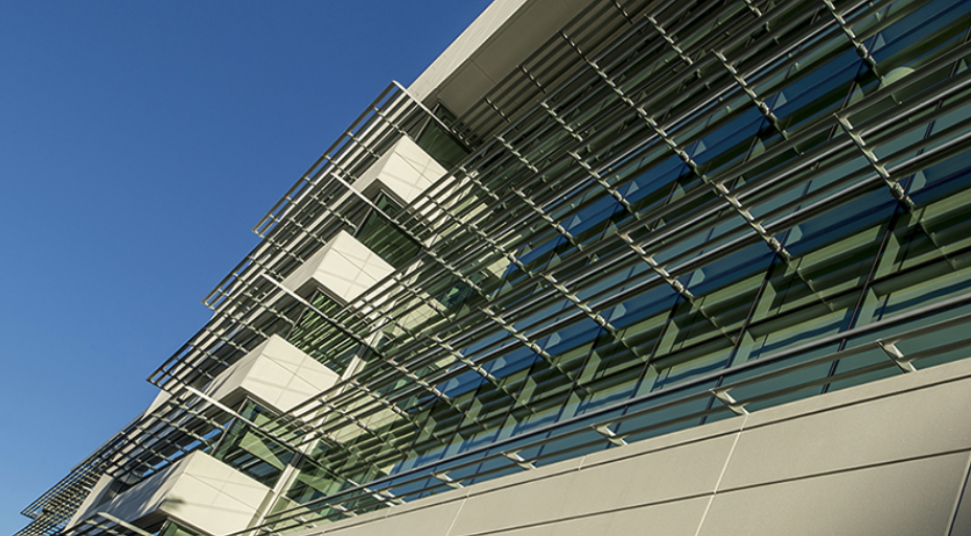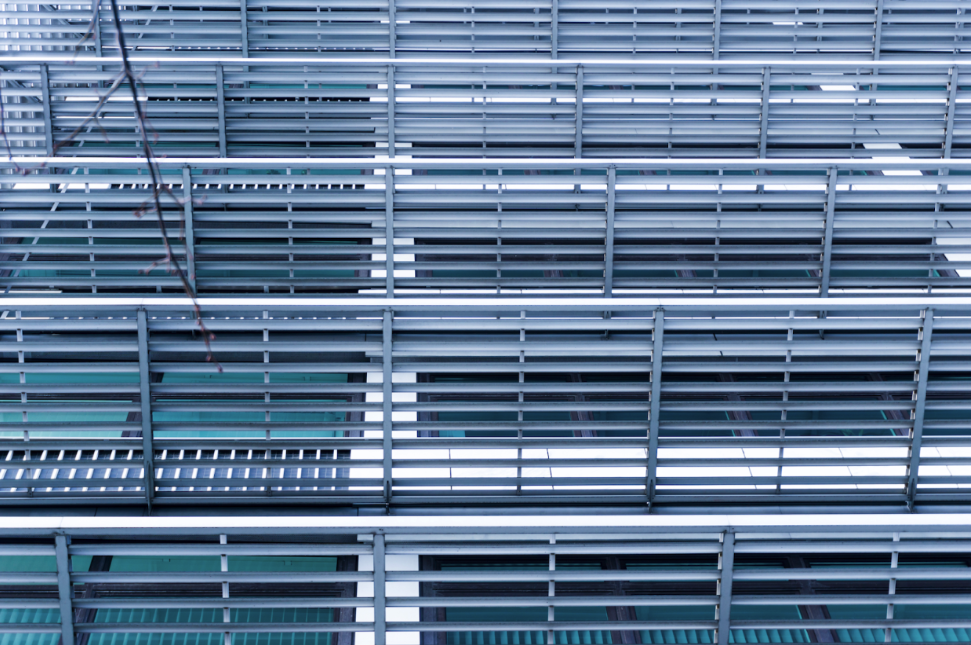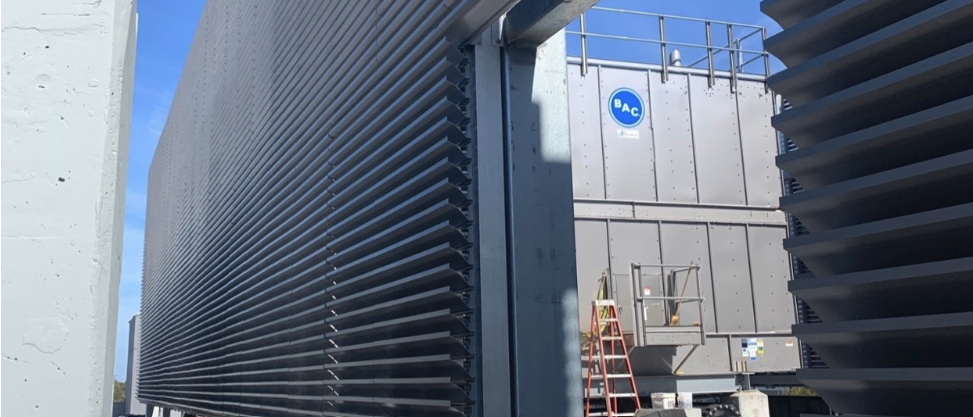
Sunshades: Combining Style and Practicality for Your Building
Sunshades are more than just an exterior design feature; they play a key role in balancing aesthetics with functionality.
These versatile architectural elements offer ventilation, shading, and energy efficiency while enhancing a building’s overall look.
This guide explores the different types of window louvers, material choices, benefits, and their applications in residential and commercial settings to help you make the best decision for your project.
The History and Evolution of Sunshades
Ancient Beginnings: Form Meets Function
Window louvers have a rich history dating back to ancient architecture, where they were first used to improve airflow and provide shade in hot climates. Early designs, often made from wood or stone, were static and functional, prioritizing ventilation and protection against harsh sunlight.
Modern Innovations: Balancing Aesthetics and Efficiency
Over time, innovations in materials and design transformed louvers into versatile architectural features, combining aesthetic appeal with advanced functionality. Today, modern sunshades are made typically from materials like aluminum, offering enhanced durability and customization.
Their evolution reflects a growing focus on sustainability, energy efficiency, and architectural creativity, making them a staple in commercial construction.
Blending Aesthetics and Performance with Sunshades

The design of sunshades blends form and function, offering a practical way to manage airflow, light, and privacy while complementing architectural aesthetics.
What Are Sunshades
Sunshades or fins—fixed or adjustable—designed to manage light and airflow through windows while somewhat offering protection from the elements. Positioned at specific angles, they allow natural ventilation, reduce glare, and shield interiors from rain and debris.
Popular Types of Sunshades
- Louver Blade:
- Tubular blade:
- Airfoil blade:
Selecting the appropriate blade design for sunshades is key to ensuring their durability, performance, and visual appeal in any setting.
Functional Benefits of Sunshades
Sunshades are more than an architectural accent—they deliver a range of benefits that improve comfort, efficiency, and protection.
Improved Airflow
Louvers facilitate natural ventilation, reducing the need for energy-intensive HVAC systems. By allowing air to pass through while keeping rain and debris out, they ensure consistent airflow without compromising interior cleanliness.
Energy Savings
By reducing solar heat gain and providing shade, window louvers help stabilize indoor temperatures. This reduces the reliance on air conditioning and lowers overall energy costs.
Enhanced Privacy
While allowing light and air to filter in, louvers can be angled to limit visibility from the outside, making them ideal for both urban and suburban environments.
Weather Protection
Exterior louvers act as a shield against harsh weather, extending the lifespan of your windows. They also reduce the impact of noise pollution, creating quieter indoor spaces.
With their ability to adapt to diverse architectural styles, window louvers offer customizable solutions to meet specific design and functional needs.
Tailored for Any Project: Design and Customization
Window louvers can be tailored to suit a variety of architectural styles and functional needs, making them an adaptable choice for nearly any project.
Architectural Integration
Whether your building features sleek, modern lines or a more traditional design, louvers can be customized to match. For example:
- Minimalist designs benefit from clean, horizontal aluminum louvers.
- Rustic or transitional styles pair beautifully with natural wood finishes.
Customization Options
- Colors: Powder-coated finishes in various shades allow seamless integration with exterior color schemes.
- Sizes: Adjustable slats and variable dimensions ensure optimal shading and airflow control.
- Configurations: Horizontal, vertical, or mixed arrangements offer endless design possibilities.
Commercial Buildings
Businesses benefit from sunshades, equipment screens for both practical and aesthetic reasons. In office buildings, retail spaces, and hospitality venues, they create comfortable environments for employees and customers while complementing the building’s architectural design.
Practical Uses of Aluminum Louvers in Urban and Suburban Settings

Equipment Screens for coverage of unsightly equipment
In urban high-rises, equipment screens are an ideal solution for balancing ventilation, shading, and privacy. Their lightweight yet durable construction makes them perfect for tall buildings, where reducing solar heat gain and improving energy efficiency are priorities. For instance, a commercial high-rise might use adjustable aluminum louvers to manage airflow and minimize glare, creating comfortable indoor spaces while maintaining a sleek, modern exterior design.
Understanding the Costs and Benefits of Sunshades and Equipment Screens
Window louvers are an investment in functionality and design. Here’s what influences their cost:
- Material: Aluminum offers cost efficiency and durability, while wood appeals to premium aesthetics at a higher price point.
- Customization: Tailored options such as motorized adjustments or unique finishes can increase overall costs.
- Installation Complexity: Professional installation ensures proper alignment and performance, but project complexity can affect labor costs.
Despite the upfront expense, window louvers often provide long-term savings through reduced energy consumption and maintenance.
Equipment Screens, Sunshades and Sustainability
For environmentally conscious projects, window louvers are a smart choice. They support green building initiatives by:
- Reducing Energy Demand: By minimizing solar heat gain, louvers decrease the reliance on HVAC systems, leading to significant energy savings.
- Contributing to Passive Cooling: Strategically designed louvers facilitate natural ventilation, promoting passive cooling and reducing the need for mechanical air conditioning.
- Utilizing Recyclable Materials: Air Performance LLC offers aluminum louvers, known for their durability and recyclability, aligning with sustainability goals.
Additionally, Air Performance LLC's commitment to sustainability is evident in their use of eco-friendly materials and practices. Their aluminum louvers are not only corrosion-resistant but also contribute to a building's overall energy efficiency, supporting LEED certification efforts.
Achieve the Perfect Balance with Air Performance LLC
Choose window louvers from Air Performance LLC to elevate both the functionality and aesthetics of your building. we offer tailored solutions to improve airflow, reduce energy costs, and enhance design.
Contact us today for more information.